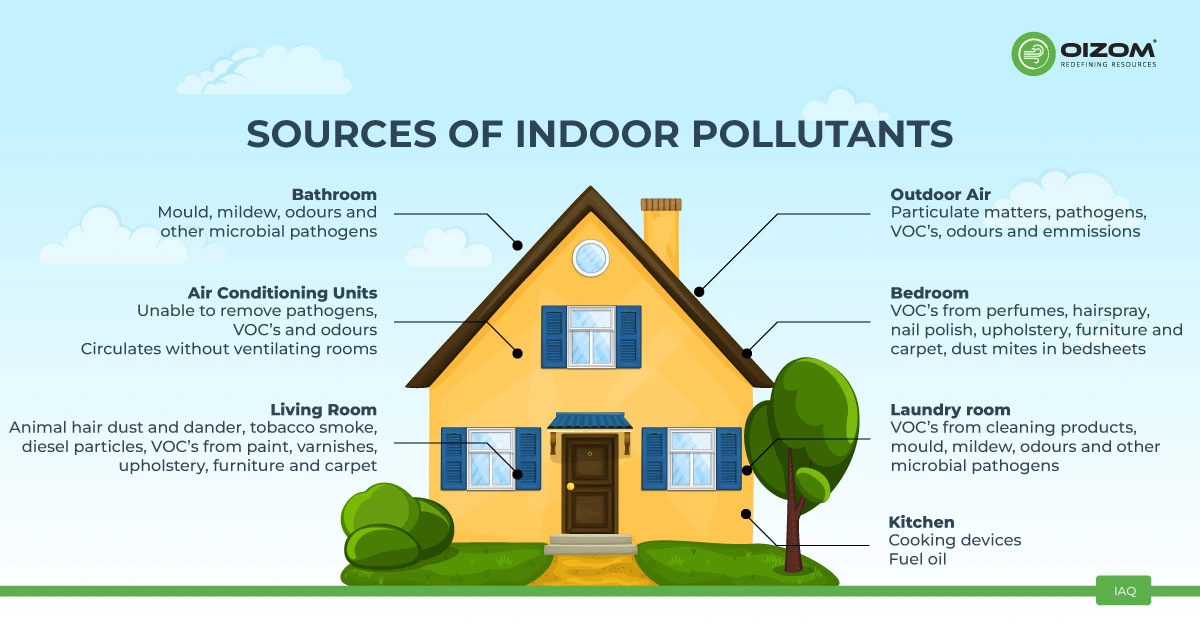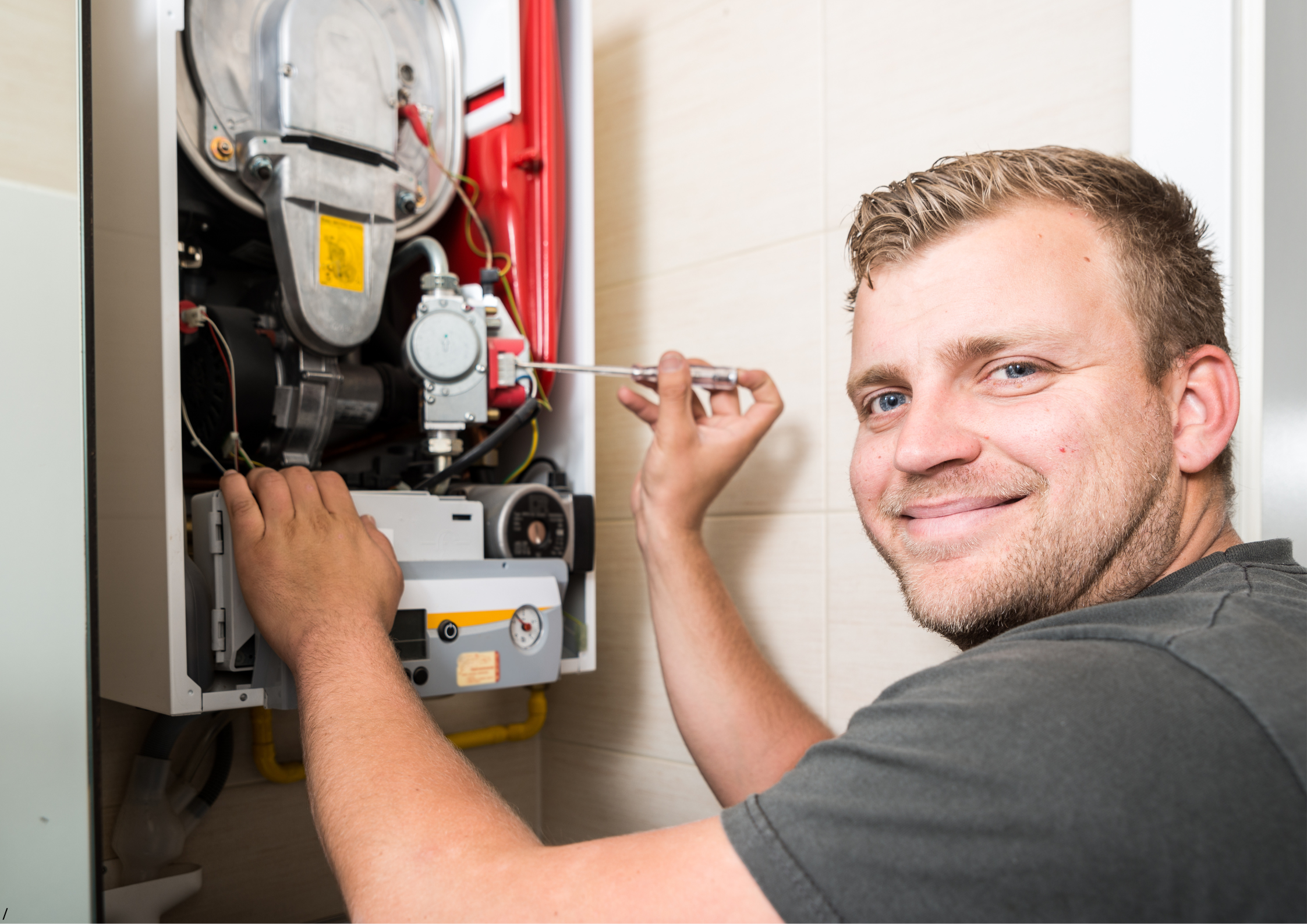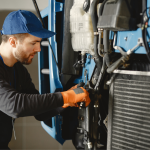What is Indoor Air Quality (IAQ)?
Indoor air quality (IAQ) refers to the condition of the air inside buildings, including homes, offices, and other indoor spaces. It encompasses the presence of indoor air pollutants, temperature, humidity, ventilation, and the overall comfort level. Poor indoor air quality can lead to various health issues, making it crucial to understand and improve the air we breathe indoors.
Why is Indoor Air Quality Important?
Many people assume that staying indoors protects them from pollution, but the reality is that indoor air can be more contaminated than outdoor air. Poor indoor air quality can lead to serious health concerns, including:
- Allergies and asthma flare-ups
- Respiratory infections
- Fatigue and headaches
- Skin irritation
- Worsening of chronic conditions like COPD
- Increased risk of heart disease and lung cancer
Common Indoor Air Pollutants
The air inside our homes and workplaces can be filled with various indoor air pollutants that affect indoor air quality, including:
1. Volatile Organic Compounds (VOCs)
VOCs are toxic chemicals emitted from products like paints, cleaning agents, and building materials. They contribute to poor indoor air quality and can cause eye irritation, nausea, and long-term health risks.
2. Particulate Matter (PM)
Fine particulate matter is a mixture of tiny particles that can penetrate deep into the lungs and cause respiratory problems. Sources include cooking appliances, tobacco smoke, and heating systems.
3. Carbon Monoxide (CO)
A colorless, odorless gas, carbon monoxide results from incomplete combustion of fuels and can be deadly at high concentrations. Proper ventilation is essential to prevent CO buildup.
4. Mold Growth and Spores
Excess moisture in homes can lead to mold growth, which can trigger allergies and respiratory infections. Proper ventilation and dehumidifiers help prevent mold issues.
5. Pet Dander and Dust Mites
Pet dander and dust mites are common allergens that accumulate in carpets, bedding, and furniture. Regular cleaning and air purification can help reduce their impact.
6. Secondhand Smoke and Tobacco Smoke
Tobacco smoke contains thousands of toxic chemicals that can linger in indoor environments and negatively impact human health.
7. Radon Gas
Radon is invisible and odorless, yet it is the second leading cause of lung cancer. Testing your home for radon today can help prevent exposure.
How Outdoor Air Pollution Affects Indoor Air Quality
Outdoor air pollutants, such as smog, wildfire smoke, and industrial emissions, can seep into indoor spaces and worsen indoor air pollution. Poor outdoor air quality can impact your indoor air, making it essential to improve indoor air quality through filtration and ventilation.
How to Improve Indoor Air Quality
To breathe indoors safely, follow these steps:
1. Ensure Proper Ventilation
- Open windows and use exhaust fans to reduce indoor concentrations of pollutants.
- Use air purifiers with HEPA filters to remove particulate matter.
- Follow ASHRAE guidelines for wildfire smoke to maintain clean air indoors.
2. Test Your Home for Radon
- Radon is a silent killer. Testing your nest for radon ensures your family’s safety.
- The Environmental Protection Agency (EPA) provides regional and state contacts for radon testing.
3. Reduce Sources of Indoor Pollutants
- Avoid tobacco smoke indoors.
- Use natural cleaning products to minimize volatile organic compounds.
- Regularly clean HVAC systems and replace filters.
4. Control Humidity and Prevent Mold Growth
- Keep indoor humidity levels between 30-50% to discourage mold growth.
- Fix leaks and use dehumidifiers in damp areas.
5. Be Mindful of Building Materials
- Asbestos-containing materials can release toxic fibers when disturbed.
- Opt for low-VOC paints and eco-friendly building materials.
Indoor Air Quality and Public Health
The World Health Organization (WHO) and the Environmental Protection Agency (EPA) highlight the significant health effects of poor indoor air quality. Factors that contribute to poor IAQ include inadequate ventilation, exposure to toxic chemicals, and the presence of indoor pollutants and sources.
Wildfires and Indoor Air Quality
Wildfires could impact air quality both outdoors and indoors. The ASHRAE guideline for wildfire smoke offers recommendations for filtering air and maintaining healthy indoor environments during wildfire events.
Upcoming Events and Resources for Indoor Air Quality
Organizations like the National Institute of Environmental Health Sciences and the EPA provide valuable IAQ science and technologies. Look out for indoor air quality networking events and indoor air-related webinars to stay informed about the latest research and innovations.
Indoor air pollution is an invisible threat you can’t see, but it can have a significant impact on your health. Taking proactive steps, such as proper ventilation, testing for radon, and reducing indoor pollutants, can improve indoor air quality. Protect your family and building occupants by creating a healthier indoor environment today.
What Are the Common Pollutants in Indoor Air?
Pollutants can enter your home from various sources, including cleaning products, furniture, pets, and even outdoor air. Here are some common pollutants affecting indoor air quality:
|
Pollutant |
Sources |
Health Effects |
| Dust & Allergens | Carpets, pet dander, pollen | Allergies, asthma |
| Mold & Mildew | Moisture, leaks | Respiratory infections |
| Volatile Organic Compounds (VOCs) | Paint, cleaning products | Headaches, nausea |
| Carbon Monoxide | Gas appliances, fireplaces | Dizziness, confusion, death |
| Tobacco Smoke | Cigarettes, cigars | Lung cancer, heart disease |
What Types of Air Purifiers Do You Install?
One of the best ways to improve indoor air quality in Sachse, Texas, is by installing air purifiers. Equal Heat & Air provides professional installation of various air purifiers to suit different needs. Here are the types of air purifiers we install:
1. HEPA Air Purifiers
- Capture 99.97% of particles as small as 0.3 microns
- Ideal for homes with allergies and asthma sufferers
- Effective against pollen, dust, and pet dander
2. Activated Carbon Air Purifiers
- Remove odors, VOCs, and harmful gases
- Best for eliminating smoke and chemical pollutants
- Great for households with strong cooking odors
3. UV Light Air Purifiers
- Kill bacteria, viruses, and mold spores
- Reduce airborne illnesses
- Commonly used in hospitals and homes with immunocompromised individuals
4. Ionic Air Purifiers
- Emit negatively charged ions to trap airborne particles
- Reduce pollutants without using filters
- Not as effective against large particles like dust and pollen
5. Hybrid Air Purifiers
- Combine multiple purification technologies (HEPA + UV + Carbon)
- Offer comprehensive air cleaning solutions
- Recommended for maximum indoor air quality improvement
How to Maintain Good Indoor Air Quality
Besides installing air purifiers, here are other ways to maintain healthy indoor air quality:
- Regularly change HVAC filters
- Keep humidity levels between 30-50%
- Ventilate your home by opening windows when possible
- Avoid using harsh chemical cleaners
- Keep carpets and upholstery clean
Indoor Air Quality in Sachse, Texas: Why It Matters Locally
Many communities in Sachse, Texas, struggle with poor indoor air quality due to seasonal allergens and fluctuating humidity levels. Whether you live near Heritage Park (Local Park+Indoor Air Quality), attend First Baptist Church of Sachse (Local Church+Indoor Air Quality), or visit Sachse Fallfest (Local Festival+Indoor Air Quality), ensuring clean indoor air in your home should be a priority.
Improve Your Indoor Air Quality with Equal Heat & Air
At Equal Heat & Air, we specialize in improving indoor air quality for homes and businesses in Sachse, Texas. Our professional air purification installation services ensure you and your loved ones breathe cleaner, healthier air. Contact us today at Equal Heat & Air to schedule a consultation and take the first step toward a healthier indoor environment.

